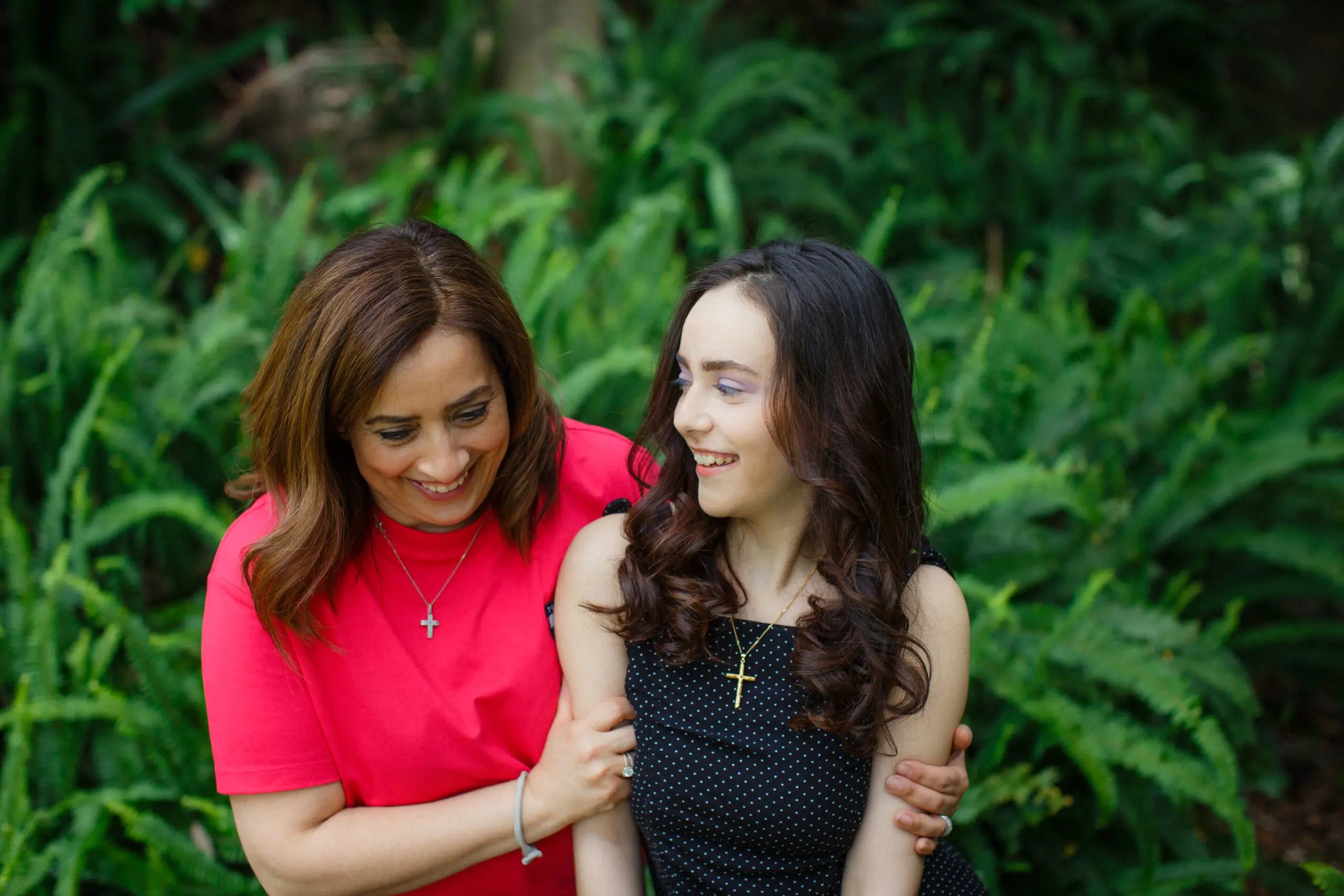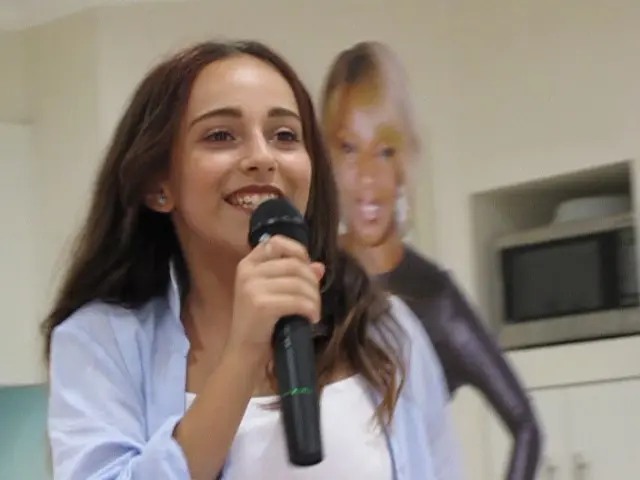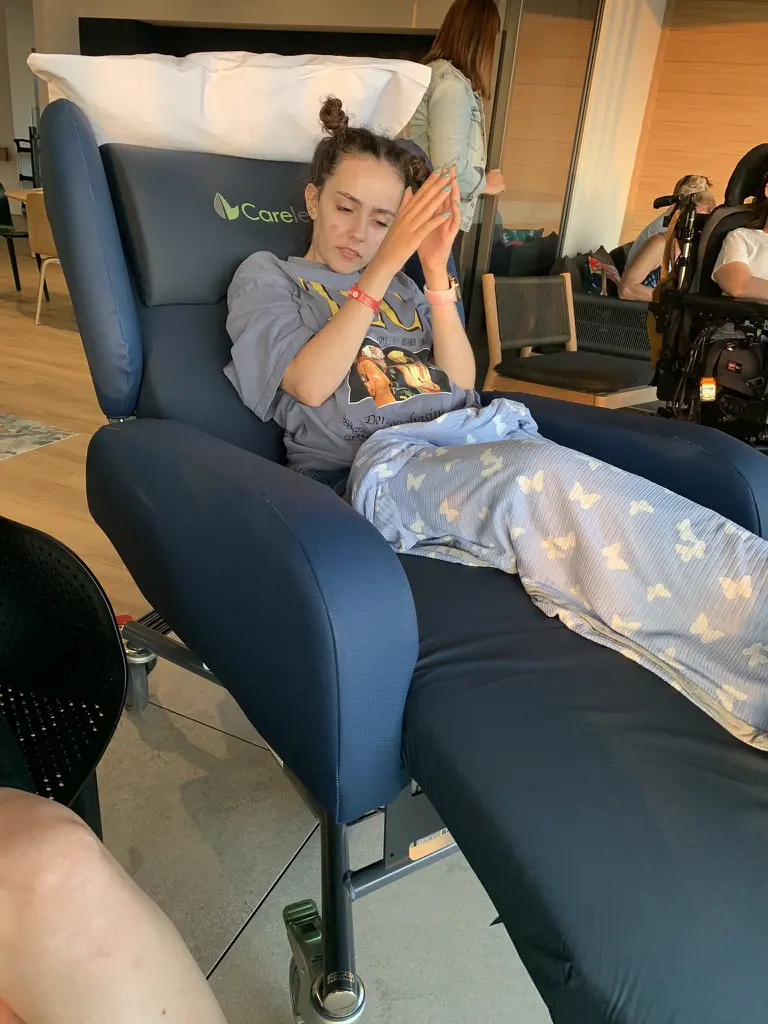
Five years ago, Niki’s daughter Angelina was a healthy, social, independent 14-year-old who dreamed of becoming a make-up artist, singer or actress.
Ange loved performing arts and would often stay back at school for dance or singing rehearsals and help with the latest musical production. While on a year nine school camp, Niki was told that Ange had fainted, but it wasn’t witnessed. Niki then started to notice a few subtle changes in Ange’s behaviour that Niki recalls, “didn’t seem right”.
“Ange was helping me set the table for dinner and dropped a glass of water and my stepdaughter said that Ange was falling over a lot while they were out walking the family dog,” said Niki, “so I took her to our doctor who gave us a referral to see a neurologist.”
Before the appointment, Ange recalled the moment her life changed forever.
“Ange asked me to colour her hair and I said of course but when she came to hug me, she had a seizure. I’d never seen anyone experience a seizure before, but it was so traumatic I couldn’t stop screaming.”
Niki’s partner called an ambulance which took Ange to the hospital. It was the start of endless hospital admissions and appointments with doctors, paediatricians and neurologists to find the cause of the seizures.
Ange was initially misdiagnosed with juvenile myoclonic epilepsy (JME) which often begins in the teenage years. With medication, she was still able to go to school, but her seizures continued.
Niki couldn’t imagine Ange’s condition could be something worse than epilepsy; however, despite Ange being on numerous medications to control her condition, within a few months her seizures were occurring more frequently to once or twice a week. These ranged from absent seizures where she would stare into space and be very still, to tonic-clonic seizures with violent muscle contractions and loss of consciousness.
During a lengthy hospitalisation for further tests and trialling different medications, a genetic test discovered Ange has a rare autosomal recessive genetic disorder called Lafora Disease, a form of childhood dementia. Doctors informed the family that Ange had a life expectancy of five to ten years which was heartbreaking news. Ange was only 15 years old.
“There was nothing on it when I Googled it. It’s an extremely rare neurological degenerative disease and Ange is the only person in Australia that we know to have it.”
“It’s just devastating and it’s completely changed our whole lives,” said Niki who resigned from a corporate marketing role to become Ange’s full-time carer.
As Ange’s seizures could be fatal, Niki relies on support from carers and nurses during the day to provide the constant care Ange needs. At night, Niki sleeps next to Ange to stop her from moving around the house and potentially hurting herself. Hospital visits are frequent with Ange often admitted for two to three days at a time.
“We usually stay in a ward with much older dementia patients which is not a place for a young girl,” said Niki.
When Ange discovered the Adolescent and Young Adult Hospice (AYAH) in Manly, it was a relief. Before then, there was no respite services available for adolescents with complex issues.



“Until the AYAH, there was nowhere that offered the one-on-one care that Ange needs so as soon as it opened, I booked in for a week's respite with Ange. The staff is truly amazing, and having qualified nurses and a doctor on duty also gives me so much comfort.”
Niki also appreciates all the additional services that are available at the AYAH, such as the occupational therapists, psychiatrists and dieticians. With its “calm atmosphere”, Niki feels that the staff understand Ange and her daily routine and they have everything she needs so her family can avoid hospital visits should she have a major seizure.
“The first night we came to the AYAH, they had a twilight session on the balcony and a musician came to sing. Ange can’t go out and listen to live music like her friends do, but she got to experience what it would be like and she really enjoyed moving her arms to the music and singing a little.”
While at the AYAH, Niki stays in a two-bedroom apartment and can get the respite she needs.
“It gives me the opportunity to recharge and a bonus is that I sleep in my own bed.”
Niki loves that her family can stay and all have a meal together. She can take the time she needs to go for a walk while the staff watch and care for Ange. Niki trusts that if there are any issues, they will get her straight away.
“When she’s scared and I’m not there, they comfort her which is priceless,” said Niki.
“Ange hasn’t eaten solids for two years, but the chef at AYAH took the time to make her a special meal and she loved it.”
No matter how complex or severe Ange’s condition gets, Niki is confident that the staff will treat her well. Niki believes that the AYAH has an amazing healthcare team that “feel like family”.
Niki said, “the staff even organised a visit from James Tedesco who is the captain of the Sydney Roosters.”
“He gave Ange a signed jersey and she winked at him which made him blush!”
If Manly AYAH didn’t exist, Niki says she would be more stressed than she is now and Ange would require more in-home care and suffer more.
Ange is now 19 years old and progressing towards her life expectancy. She recently had 98 tonic-clonic seizures within two weeks with many lasting up to 15 minutes.
“I called everyone in the family because I thought, ‘this is it’,” Niki said.
The family has not given up on finding a cure for Ange but in the meantime, Niki and Ange have scheduled more respite visits to the AYAH.
“Manly AYAH is a vital service for us and we are so appreciative of the care, compassion and kindness shown by all the staff there.”
If you would like to support Manly AYAH and help make a difference to the lives of young adults with life-limiting conditions, provide vital respite care, and assist their families, please make a tax-deductible donation here.
Angelina passed away on 29 May 2025 after living with Lafora disease for nearly seven years. She was 21 years old.
